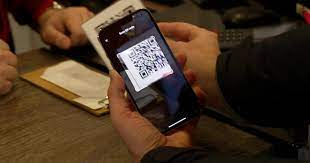If you haven't heard of cryptocurrency, you haven't been paying attention to the news recently. If you're not sure what cryptocurrency is or what you should do with it, correspondent David Pogue is here to tell you (almost) everything you need to know in nine easy steps:
1. Bitcoin was the first cryptocurrency.
The term "cryptocurrency" is abbreviated as "crypto." Bitcoin was the first, and it is currently the most widely used. However, there are over 10,000 different cryptocurrencies to choose from. One can be started by anyone!
2. They are entirely electronic currency.
If you search for "bitcoin" on Google Images, you'll see tens of thousands of images of real metal coins.
Another reason why bitcoin may not strike you as a typical currency is because of this. For the time being, you'll have a hard time spending it! You'll have a hard time buying things with a cryptocurrency at a pet store, a bodega, or a hot dog vendor.
4. The chain does not include banks or governments.
A blockchain is a trustworthy mechanism to track all of those transactions in cryptocurrency. It's a public internet database that's theoretically impenetrable to tampering.
"A new form of ledger," according to Caitlin Long, CEO and Founder of Custodia Bank, a digital currency bank. "Where various parties who don't know each other – and certainly don't trust each other – actually can trust that that shared ledger is the so-called golden copy of all the data."
All you need is an internet connection to see it. And, sure enough, websites like blockchain.com allow you to view real-time transactions that are practically anonymous.
But what good are cryptocurrencies if you can't actually shop with them? At this point, it's primarily a speculative investment that saw a significant increase during the pandemic.
5. Currently, cryptocurrency is largely used by investors.
"I think it's arguably the biggest bubble of our history," Ryan Payne, head of wealth management firm Payne Capital Management, said. "I mean, it's possible that this will be useless at some time. It's very likely."
"Do you believe it'll go to zero?" Pogue inquired.
Payne responded, "I believe there is no intrinsic worth." "Look at it this way: we use oil and even gold. Bitcoin, on the other hand, has no genuine utility in society, which, in my opinion, means it could be worthless."
Traditional currency, on the other hand, isn't based on anything tangible. The only reason a dollar bill has worth is that we all believe it does.
Long has stated, "We use a piece of linen with an image of a deceased president printed on it in green ink as money. Since the United States and the rest of the world abandoned the gold standard, nothing has significantly backed it in the last 50 years. It merely serves as a conduit. That's all there is to it."
Most people who are familiar with bitcoin regard it as a high-risk investment.
Bitcoin has its own 1% who hold a disproportionate amount of wealth.
Since October, the number of cryptocurrency scams has increased by 1,000%.
6. You buy and sell cryptocurrency on websites known as "exchanges."
The customer enters their email address, receives a verification email, is asked for their phone number, receives an authentication code via text, submits the last four digits of their Social Security number, takes a photo of their driver's license, provides their bank PIN and password, hits "But Now," and voila! Pogue has purchased 1/1000th of a bitcoin for $50 in "actual" US cash.
7. The majority of cryptocurrencies are risky investments.
Pogue bought bitcoin in May of last year, and within six months, his investment had more than doubled!
Then, as of this week, it has plunged nearly all the way back to the beginning.
8. Things will get easier.
Long has stated, "It's quite perplexing. We're still in the early phases. This reminds me of the internet in 1994." "The future will look and feel very much like your internet banking," she said.
Before crypto can enter the mainstream, it must solve a few more issues. There are numerous scams; transactions are delayed; losing your crypto password might result in the loss of your entire investment; and crypto transactions can circumvent US financial sanctions against Russia.
There's also a huge environmental cost. Creating new bitcoins and validating their transactions necessitates gigantic computer farms that consume enormous amounts of energy. According to some calculations, every Bitcoin transaction emits half a ton of carbon dioxide into the atmosphere.
9. Cryptocurrency is divisive.
You wouldn't believe how many haters and zealots there are. However, at this early stage in crypto's development, everyone seemed to agree on one thing:
"I would never advise somebody to invest more money in this than they can afford to lose," Long stated.
And what about Payne? "My attitude is to only invest money that you can afford to lose," he explained.
====
Images culled from Google Image Search.
====
















0 Comments